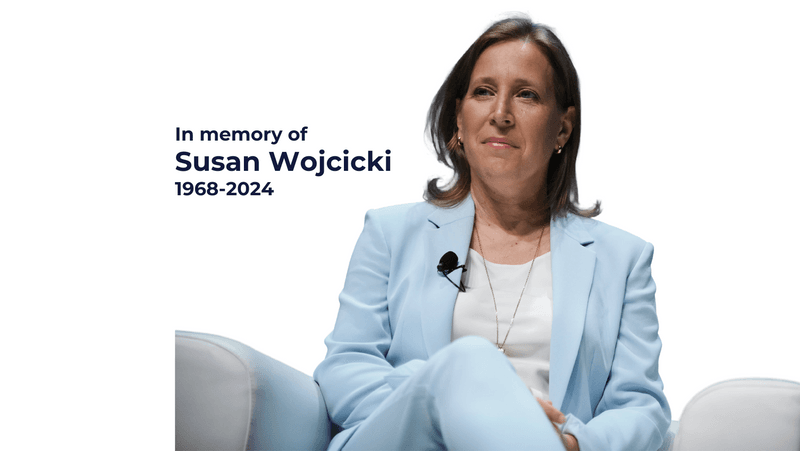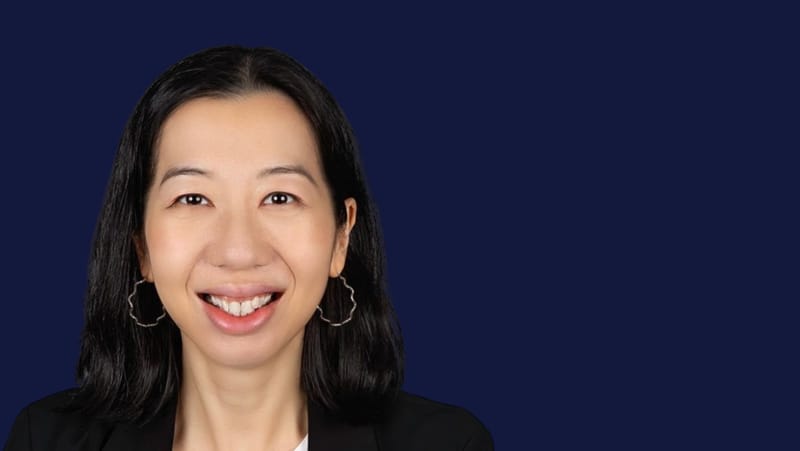At Moxy, we believe in inspiring action by highlighting real stories of real women. Meet Rani Nandan: DEI Director, Cultural Explorer, and an Advocate for Workplace Inclusion. From Australia to Singapore, her career path challenges norms and inspires change in diversity and inclusion practices across APAC. Through her insights, Rani empowers professionals to set bold goals and organizations to build more empathy and adopt a practical approach to inclusive workplaces.
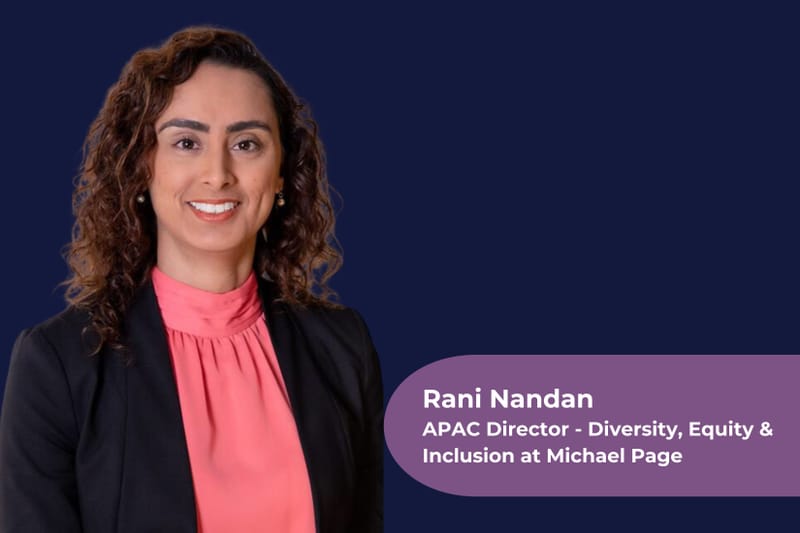
Introducing Rani Nandan
Can you briefly share about yourself, your professional journey and the most important milestones that have shaped your career?
Thanks for including me in this series. My name is Rani Nandan. I’m the APAC Director for Diversity, Equity and Inclusion (DEI) at Michael Page, a global recruitment agency. I’ve transitioned into the DEI world after more than 15 years experience in human resources.
I grew up in Sydney, Australia and began to travel as soon as I finished high school. I’m fascinated by different cultures, love tasting new foods and exploring new cities. I am what many people would call mixed race, my mother is Australian and father is Fijian Indian. I grew up in a household that practiced two religions – Catholicism and Hinduism. My upbringing gave me a great foundation for respectful curiosity and being able to see various perspectives.
What unconventional approach or lesson learned in your career has had the most significant impact on your success?
Twice in my career, I've left full time work and taken on contract work to move industries, learning new skills and embracing new challenges.
These short-term contracts have paid off and both resulted in full time work, including progression within each company.
I acknowledge the privilege I had that enabled me to take these bold steps and that not everyone can risk the stability of full time work, but if you can, you should back yourself!
Early on in my career I worked in a small business. Often in such environment, your role will go beyond your job title - as everyone must work together to get the job done. You end up being exposed to a broader skillset and responsibilities. This gave me a greater commercial base and has been invaluable for me later in my career as I navigate and influence more senior stakeholders.
What advice would you give to emerging professionals, particularly women, navigating their careers?
A few tips from me:
1. I’m a big advocate for setting goals; career, personal, fitness and financial. Work towards your goals but recognise that sideway steps may play a part, as not all careers are linear.
2. Understand what motivates you, what triggers you and invest time in your mental wellbeing.
3. Find your tribe - people who will challenge you, support you and advocate for you.
4. Don’t be afraid of self promotion.
TAKING A PRACTICAL APPROACH TO DRIVING WORKPLACE INCLUSIVITY
How do you stay informed about the latest news on workplace inclusivity, and how does this knowledge contribute to your ongoing efforts in building a more inclusive work environment? Are there any reading sources you can share with us?
DEI is an ever-evolving subject – there is always more to learn!
I am constantly looking for new perspectives, seeking to understand the lived experience of others, listening out for inclusive language, while also studying the case-studies and best practice examples from organisations all over the world. I'm an avid reader and have recently switched to e-books. Some of my favourites recently have included Culture Map, by Erin Meyer, Just Work, by Kim Scott, Leading Global Diversity, Equity and Inclusion, by Rohini Anand and Birds of All Feathers by Michael Bach.
I’m also a big advocate of following profiles on social media to be exposed to different perspectives and learn from others. In addition to books, I subscribe to various podcasts and newsletters.
I believe that these resources help inform a more practical approach to DEI by building empathy, they often build credibility, and certainly help with problem solving and creativity.
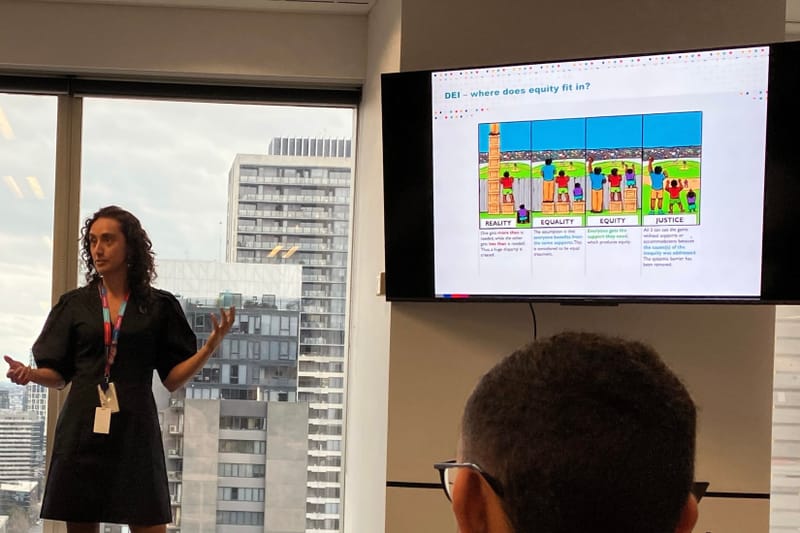
In your opinion, what are the most significant challenges women face in advancing to leadership roles within your industry, and how can organisations address these challenges effectively?
I believe the majority of challenges stem from two factors:
1. Systemic & structural
2. Bias & assumptions
Find the moments that matter.
Where are you losing women?
What is the feedback from women in senior roles?
What is the perception from women in more junior roles about their aspirations and likelihood of succeeding in a more senior role?
Look for ways to reduce bias, this could be by improving your promotion processes or your performance review process (for example).
How can you debunk some of the myths and assumptions being made at senior levels?
How can you build more empathy and inclusive behaviours across all levels of your business?
How do you measure the success of gender equality efforts in your workplace, and what metrics or indicators do you believe are most important in assessing progress?
We love data and are always looking to use it to make informed decisions, hold ourselves accountable and track progress. We have set clear gender targets at every level in our business and report on this regularly. Further, we track time and volume of promotion by gender. We also regularly run gender pay gap audits. We analyse our employee engagement survey results by gender.
In addition to data, we spend time gathering qualitative inputs via forums, surveys and Adhoc feedback. It’s important to look at all of these types of inputs in order to measure success.
Contents
- Introducing Rani Nandan
- Can you briefly share about yourself, your professional journey and the most important milestones that have shaped your career?
- What unconventional approach or lesson learned in your career has had the most significant impact on your success?
- What advice would you give to emerging professionals, particularly women, navigating their careers?
- TAKING A PRACTICAL APPROACH TO DRIVING WORKPLACE INCLUSIVITY
- How do you stay informed about the latest news on workplace inclusivity, and how does this knowledge contribute to your ongoing efforts in building a more inclusive work environment? Are there any reading sources you can share with us?
- In your opinion, what are the most significant challenges women face in advancing to leadership roles within your industry, and how can organisations address these challenges effectively?
- How do you measure the success of gender equality efforts in your workplace, and what metrics or indicators do you believe are most important in assessing progress?
- Transitioning back to work after parental leave is a key concern as well, what have some organisations done to ease this for their employees?
- Are the current employee engagement surveys proving to be effective in identifying and addressing the changing needs of the modern Asian woman in the workplace?
- How do you think a collective approach, as advocated by the Moxy Movement, can effectively drive positive change in workplace gender dynamics?
Transitioning back to work after parental leave is a key concern as well, what have some organisations done to ease this for their employees?
I've seen some wonderful support mechanisms in place both at Michael Page and the organisations we work with. Firstly, every employee’s parenting journey will be unique, so we can’t make assumptions about what they may need, but having a selection of programs will be very valuable. Some of these programs include:
- flexible working hours
- revised KPIs and bonus thresholds
- recognising the skills gained on leave as part of promotion plans
- phased return to work (start by working part-time and ramp back to full time hours with no change in salary)
- allocate a parenting buddy or connect parents as part of a network
- emergency care (for example if the child is sick and can’t attend childcare)
- parenting concierge and life coaches
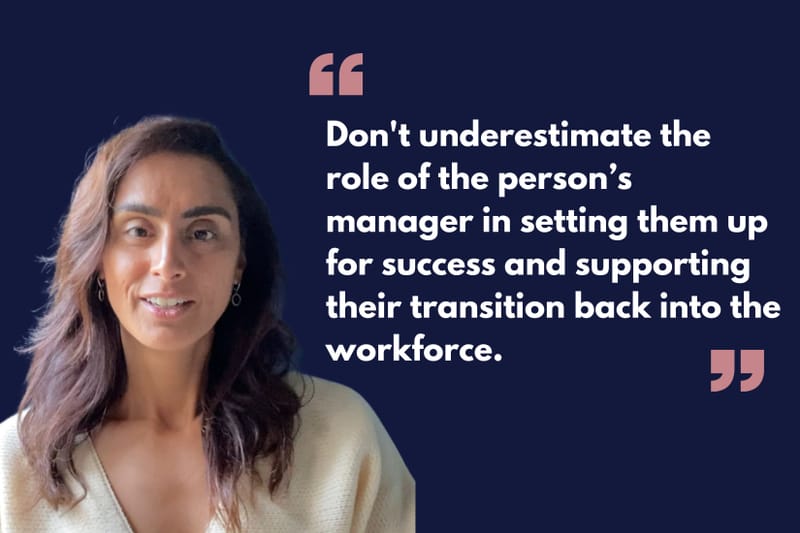
Are the current employee engagement surveys proving to be effective in identifying and addressing the changing needs of the modern Asian woman in the workplace?
In my experience there is benefit in focusing on building trust and a culture of psychological safety to improve the quantity and quality of survey responses.
I think the most important things to consider with effectiveness of surveys are:
- data analysis
- accountability for the results
- commitment to take action
- communicating the results and associated actions
There is not one profile for the “modern Asian woman”, this is where the use of personas can be very helpful to understand the needs and challenges of particular groups.
How do you think a collective approach, as advocated by the Moxy Movement, can effectively drive positive change in workplace gender dynamics?
Put simply, gender equity is not a “women’s problem”, it’s a challenge that impacts all of us.
-
Thank you for joining as we heard from Rani on how to adopt a more practical approach to building inclusive workplaces. If you wish to share your insights, join the movement on Moxy Movement to make your voice heard! And if you are an employer looking to get some help on how to bring these practical approaches to life, contact us to know more here.
